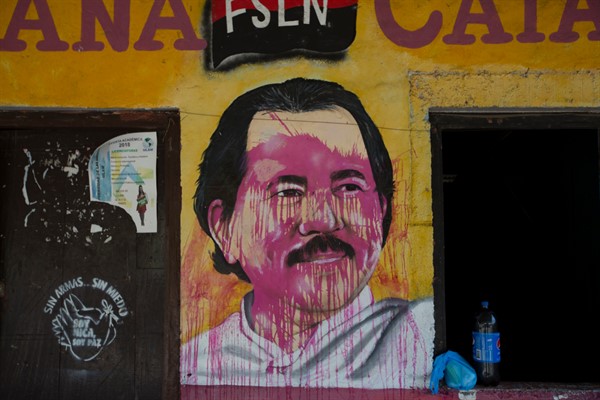It’s hard to imagine that three years ago, Nicaragua was rocked by huge anti-government protests that paralyzed the country before being ruthlessly quashed. Today, despite the COVID-19 pandemic and a lack of vaccines, the capital, Managua, is abuzz with activity. Shopping malls are teeming, while the intersections are crowded with beggars and vendors. Everyday life in this Central American country seems to have returned to normal. Visible scars of the 2018 unrest remain only in the form of graffiti, although many of the protest slogans have been daubed over with pro-government messages proclaiming, “The commander remains”—a reference to President Daniel Ortega. Anti-riot police watch over traffic roundabouts, clearly bored but ready to quell the first signs of public dissent.
With presidential and legislative elections scheduled for November, the coming months will test whether the calm is more than skin deep, as Nicaraguans face the prospect of lifetime rule by Ortega and his wife, Vice President Rosario Murillo. During a recent visit to the country, I heard a common refrain from disenchanted Nicaraguan voters: “They’re going to steal the elections.”
Ortega, who turns 76 in November, has a revolutionary past that belies his modern-day authoritarianism. As a young Marxist rebel with the Sandinista National Liberation Front, he spent seven years in prison under the dictator Anastasio Somoza’s regime before going on to help overthrow him in 1979—one of only two successful armed uprisings in Latin America after World War II. He then led the Sandinista government as it waged a civil war against the U.S.-backed contra fighters and won the country’s first post-revolution presidential election in 1984. He lost his reelection bid in 1990, but staged a successful comeback in the 2006 presidential poll and has been in power ever since.

